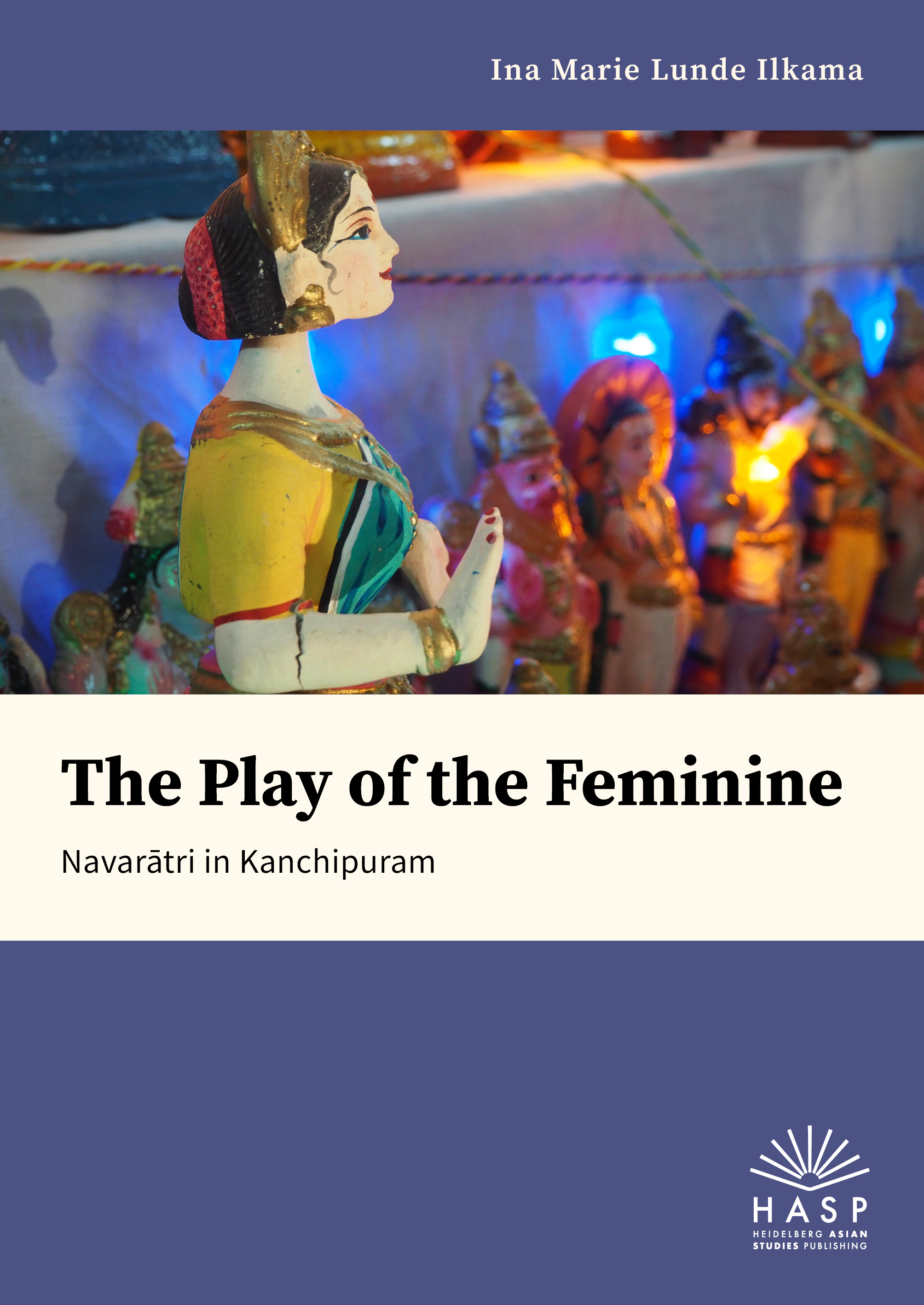
Comment citer
Licence

Ce travail est disponible sous licence Creative Commons Attribution - Pas d’Utilisation Commerciale - Partage dans les Mêmes Conditions 4.0 International.
Identifiants
Publié
The Play of the Feminine
Navarātri in Kanchipuram
In Tamil Nadu, the nine-night autumnal Navarātri festival can be viewed as a celebration of feminine powers in association with the goddess. This book explores Navarātri as it is celebrated in the South Indian temple town of Kanchipuram. It investigates the local mythologies of the goddess, two temple celebrations, and the domestic ritual practice known as kolu (doll displays). The author highlights three intersecting themes: namely the play of the goddess in myth and ritual, the religious agency and images of women and the divine feminine, and notions of playfulness in Navarātri rituals; as articulated in creativity, aesthetics, competition, and dramatic expressions.
Reviews
Ina Marie Lunde Ilkama in conversation with Raj Balkaran on New Books Network (2024)








